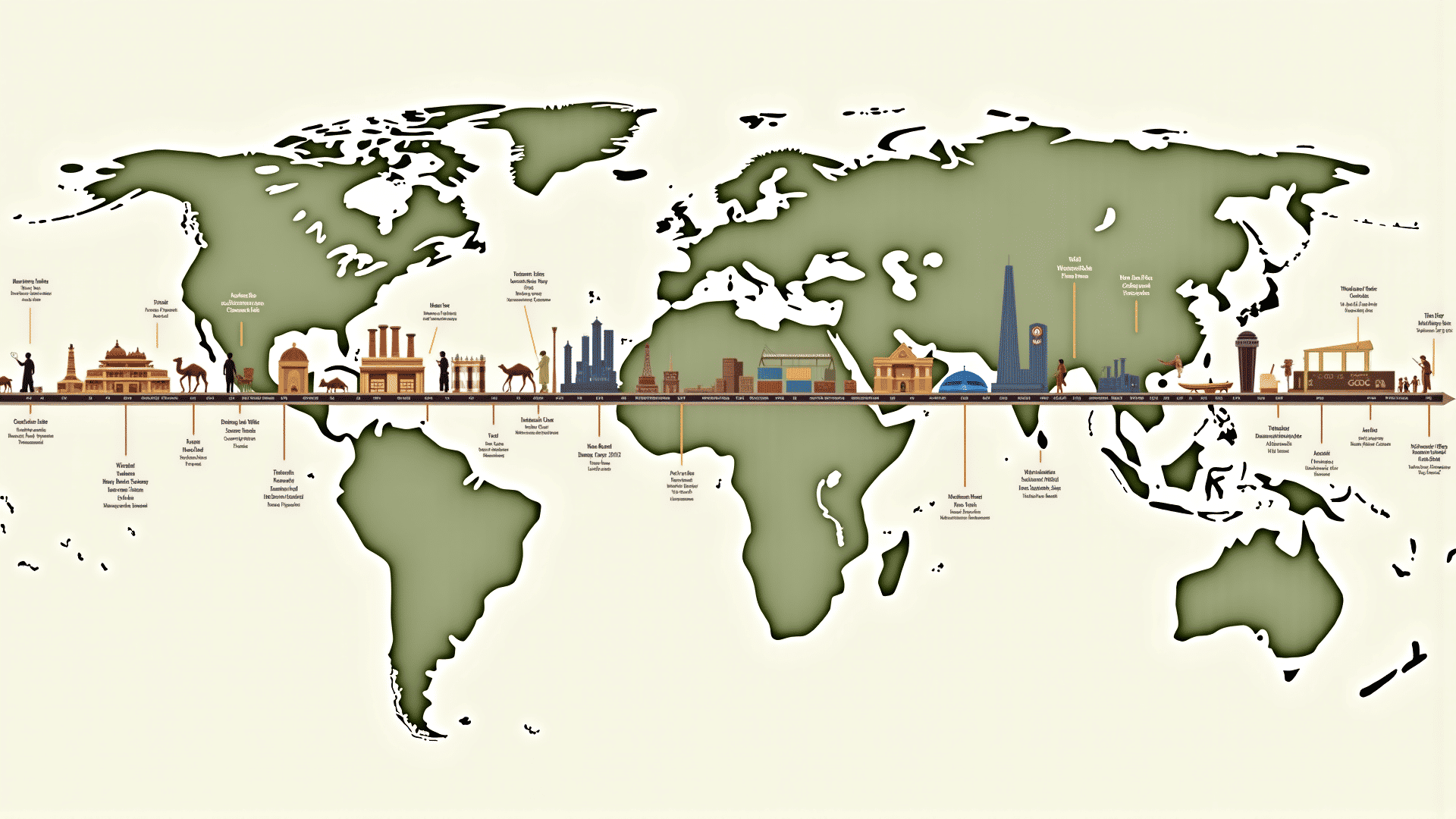Throughout history, economic events have dramatically influenced the structure and development of global economies. Understanding these pivotal moments allows us to grasp the intricacies of today's economic landscape and anticipate future trends.
One of the most significant periods in economic history was the Industrial Revolution, beginning in the late 18th century. This era marked a shift from agrarian economies to industrial powerhouses, driven by technological advancements such as the steam engine and mechanized manufacturing. These innovations not only transformed production processes but also led to the rise of urban centers and the modern working class, setting the stage for contemporary economic systems.
The early 20th century was defined by the aftermath of two World Wars that radically altered global economic dynamics. Post-World War II, the establishment of international financial institutions and agreements, such as the Bretton Woods system and the International Monetary Fund, sought to create economic stability and prevent future conflicts. These frameworks encouraged cooperation and laid the groundwork for modern globalization by promoting trade and economic collaboration on a global scale.
The latter half of the 20th century saw the rise of information technology, which catalyzed a new phase of economic evolution. The digital revolution changed how businesses operated, influencing everything from communication to production to commerce. This period also signaled the emergence of service-based economies in various prosperous nations, further diversifying the global economic landscape.
The integration of international markets has had profound implications for economic policy, necessitating a nuanced approach to managing economic growth, inflation, and employment. As globalization deepens, countries must navigate the challenges associated with interdependent economies, including the management of supply chains, currency fluctuations, and cross-border collaboration.
Today's economists can draw vital lessons from these historical events to anticipate future economic shifts. Issues such as technological advancement, climate change, and demographic shifts will significantly impact global economic dynamics in the coming decades. Developing strategies that build on historical insights can help nations and businesses alike prepare for these changes and build resilient economies.
In conclusion, by understanding the pivotal events of economic history, we gain insight into the foundations of our global economy and the factors that will shape our economic future. Such knowledge is crucial in crafting policies that foster sustainable growth and address the challenges of an interconnected world.
